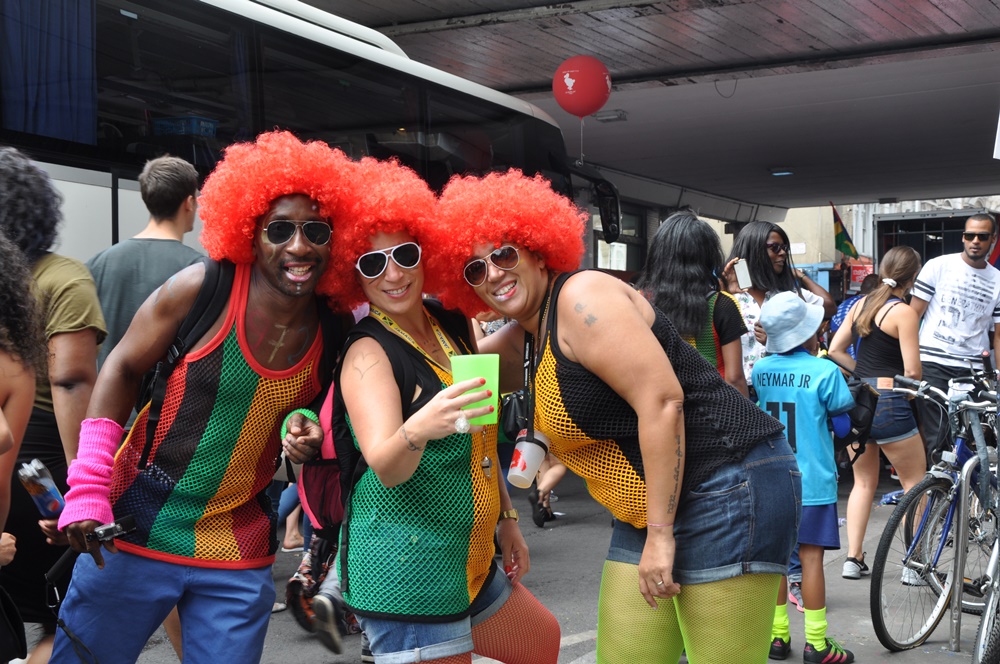The Notting Hill Carnival: A Colorful Celebration of Caribbean Culture
The Notting Hill Carnival is an annual event that transforms the streets of London into a vibrant and lively celebration of Caribbean culture. Held in the Notting Hill neighborhood, this world-renowned carnival has become one of the largest street festivals in Europe, attracting millions of visitors from around the globe. With its colorful costumes, pulsating music, and diverse culinary offerings, the Notting Hill Carnival is a testament to London’s multicultural identity and a celebration of Caribbean heritage.
History: The Notting Hill Carnival has its roots in the Afro-Caribbean community in London and emerged as a response to the racial tensions and riots that occurred in Notting Hill in the late 1950s. In 1966, Claudia Jones, a Trinidadian activist, organized the first indoor Caribbean Carnival in London as a way to promote unity and celebrate Caribbean culture. The event eventually evolved into the outdoor street carnival that we know today.
Parade and Mas Bands: At the heart of the Notting Hill Carnival is the vibrant parade, featuring masquerade bands, dancers, and musicians. Elaborate and colorful costumes, often adorned with feathers, sequins, and vibrant fabrics, are showcased by participants known as “masqueraders.” The mas bands, representing different Caribbean countries and themes, dance through the streets, creating a visually spectacular and energetic procession.
Steelpan Bands and Calypso Music: Steelpan bands, featuring musicians playing the distinctive steel drums, add a rhythmic and melodic element to the carnival. Calypso music, originating from Trinidad and Tobago, is a central part of the festivities, with performers entertaining the crowds with lively and often socially relevant lyrics. Sound systems playing reggae, soca, and other Caribbean genres contribute to the carnival’s dynamic atmosphere.
Sound Systems and Street Parties: The Notting Hill Carnival features numerous sound systems strategically placed throughout the parade route and surrounding streets. Each sound system showcases a unique mix of music, creating a mosaic of sounds that resonates throughout the neighborhood. These street parties become impromptu dancefloors, with revelers dancing to the infectious beats until the early hours of the morning.
Food and Culinary Delights: One of the highlights of the Notting Hill Carnival is its diverse culinary offerings. Street vendors line the streets, offering a wide array of Caribbean dishes, from jerk chicken and roti to fried plantains and callaloo. The aromas of spices and flavors waft through the air, creating a gastronomic experience that mirrors the rich diversity of Caribbean cuisine.
Family Day and Children’s Parade: The Notting Hill Carnival includes a Family Day and Children’s Parade, providing a family-friendly atmosphere. Children don costumes, dance to the music, and participate in the festivities, creating a multigenerational celebration that fosters a sense of community and cultural pride.
Community Engagement and Artistic Expression: The Notting Hill Carnival is not only a celebration of Caribbean culture but also a platform for artistic expression and community engagement. The event encourages creativity, collaboration, and the celebration of diversity. Local artists, performers, and community groups actively participate, contributing to the carnival’s unique and inclusive spirit.
Challenges and Controversies: While the Notting Hill Carnival is a beloved and iconic event, it has faced challenges over the years. Issues such as crowd control, safety concerns, and debates about cultural appropriation have sparked discussions about the carnival’s future. Organizers continually work to address these challenges while preserving the authentic spirit and cultural significance of the event.
In conclusion, the Notting Hill Carnival stands as a dynamic and inclusive celebration that brings people together to revel in the richness of Caribbean culture. With its colorful parades, infectious music, and diverse culinary offerings, the carnival has become a symbol of London’s multicultural identity and a testament to the power of community-driven celebrations. Each year, the streets of Notting Hill come alive with the spirit of unity, creativity, and cultural pride, making the carnival an essential and cherished event in the city’s calendar.

